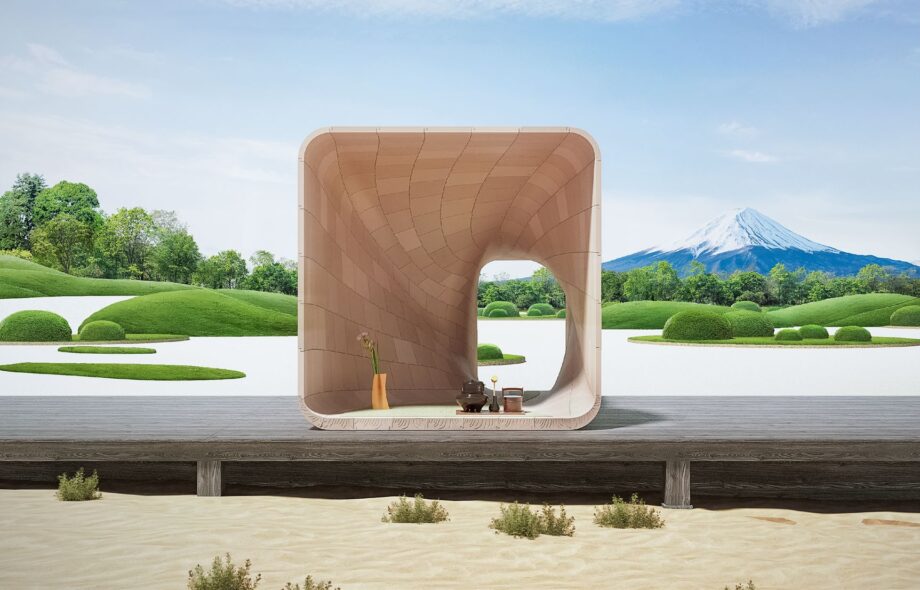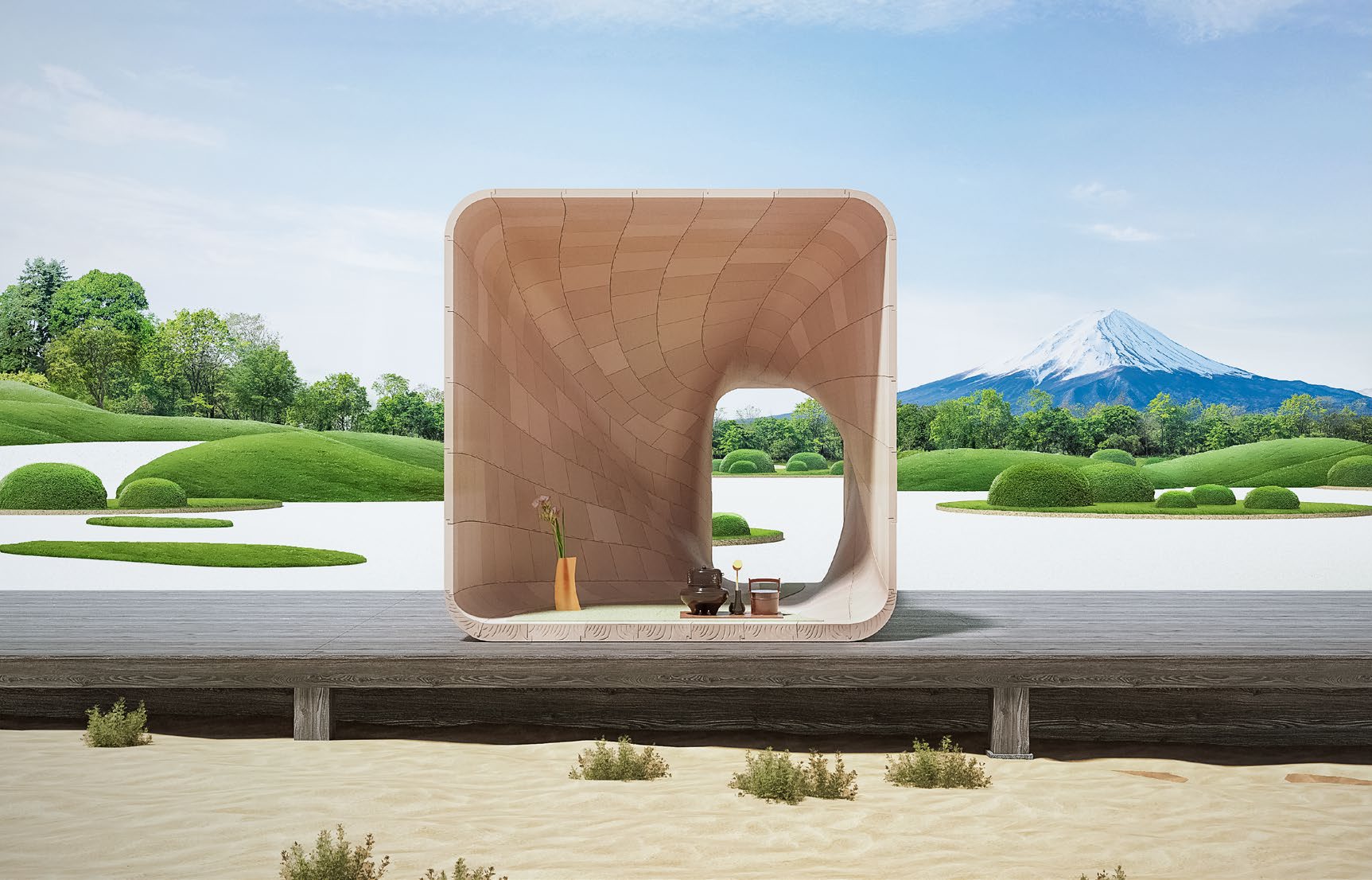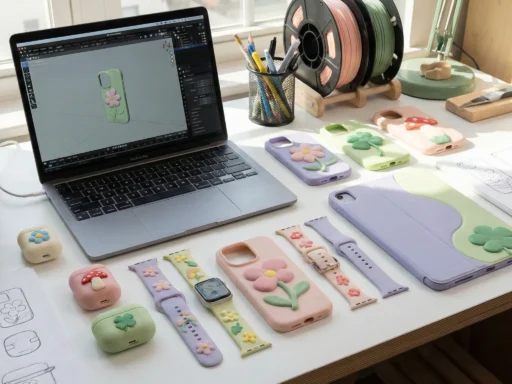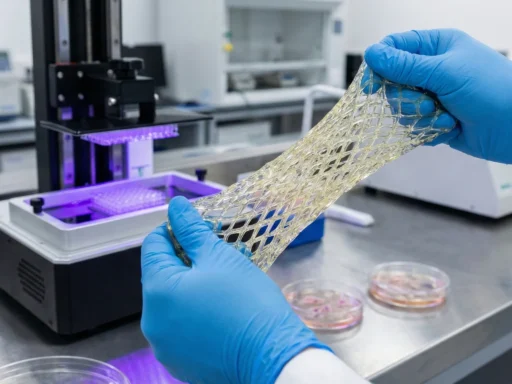The Warp, a teahouse pavilion showcasing Mitsubishi Jisho Design’s bleeding edge Regenerative Wood system, stole the spotlight at Dubai Design Week 2024. The innovation transforms wood waste and bioplastics into 3D-printed construction components, furniture, and interior items, helping craftsmanship meet sustainability.
Built from 900 panels, each with a unique shape, the pavilion boasts joints inspired by traditional Japanese woodworking techniques. Each numbered panel can be slotted together with no need for nails or fixings, making it easy to transport, assemble, or disassemble.
“The Warp is more than just a pavilion; it’s a vision of architecture’s future,” said architect Kei Atsumi of Mitsubishi Jisho Design. “It merges ancient carpentry with modern 3D printing, proving that tradition and technology can coexist to shape sustainable design.”
The 32-square-meter Warp functions as a traditional Japanese teahouse, complete with a stone path and nijiriguchi, a typical low, square entrance. The organic curves create a vortex-like effect inside, which is meant to symbolize a leap through space and time, while framing views of Dubai’s skyline.
As part of the Regenerative Wood project, the pavilion is a great example of zero-waste lumber processing, which turns sawdust into durable construction materials. The latest in Mitsubishi Jisho Design’s sustainable portfolio, the teahouse also echoes other sustainable architectural gems, such as the Tsuginote Tea House and a hybrid timber hotel in Japan.






